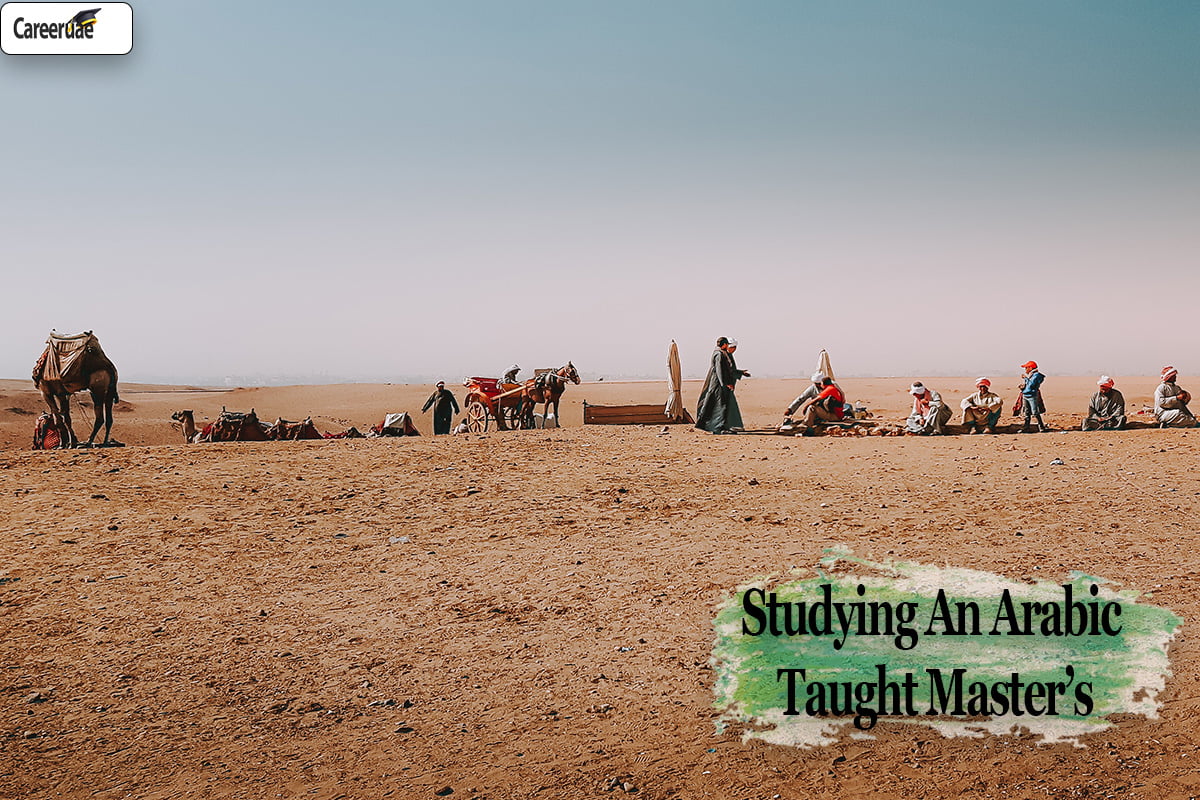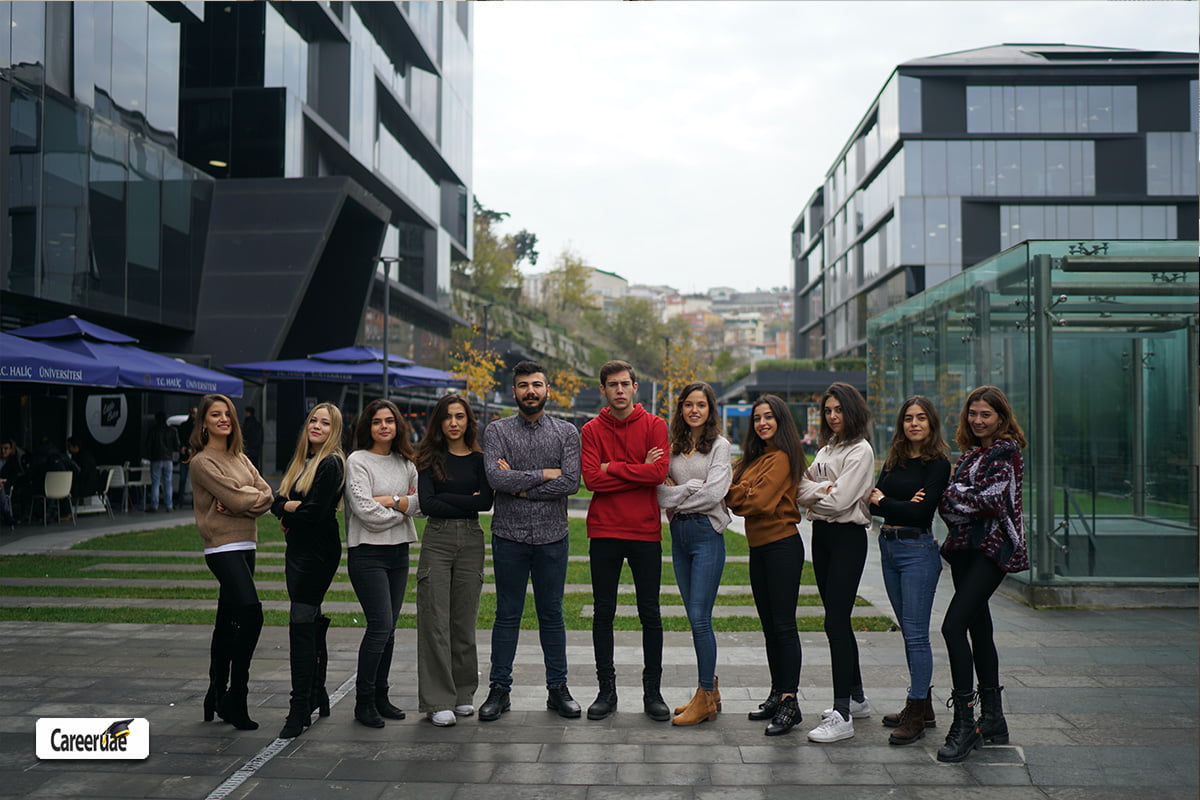Studying an Arabic-taught master’s offers four benefits: enhanced language proficiency, cultural immersion, expanded career opportunities, and a broader global perspective. Mastering the Arabic language equips students with valuable communication skills and a deep understanding of Arab cultures.
This not only enables them to connect with Arabic-speaking communities but also provides a competitive edge in today’s global job market. Moreover, studying in an Arabic-speaking country allows students to immerse themselves in the local culture, enhancing their intercultural competence.
This exposure opens doors to diverse career paths and fosters a broader global perspective, enabling students to navigate the complexities of our interconnected world with ease. Investing in an Arabic-taught master’s program enriches personal growth and professional prospects alike.
Unlocking Global Opportunities
Studying an Arabic-taught master’s degree opens up a world of global opportunities. Arabic, as a global language, provides numerous benefits. Firstly, it offers a competitive advantage in the job market, as employers increasingly value language skills. Fluency in Arabic can give you an edge over other candidates.
Secondly, it grants you access to professional networks in Arabic-speaking countries. Being able to communicate effectively with professionals in these countries can lead to collaborations and career advancements. Additionally, studying Arabic allows for a deeper understanding of the culture, history, and traditions of the Arab world.
This knowledge is valuable in today’s interconnected world and can enhance your global perspectives. Overall, choosing to pursue an Arabic-taught master’s degree can significantly enrich your personal and professional life. So, why not unlock these global opportunities and embark on a new educational journey?
Deepening Cultural Understanding
Studying an Arabic-taught master’s degree provides several benefits. One major advantage is the deepening of cultural understanding. Through immersion in Arab culture and traditions, students gain valuable insights into Middle Eastern perspectives. This firsthand experience allows for a deeper appreciation and empathy for the region’s customs and values.
Additionally, it aids in the development of cross-cultural communication skills, enabling students to navigate diverse environments with ease. The exposure to different perspectives fosters a more open-minded approach and a broader worldview. Overall, an Arabic-taught master’s degree offers a unique opportunity to expand one’s knowledge, broaden horizons, and foster connections on a global scale.
Enhanced Language Proficiency
Studying an Arabic-taught master’s degree offers several benefits, including an enhanced proficiency in the Arabic language. By immersing yourself in the language, you can build better language skills. This immersion allows for increased global communication abilities, which are crucial in today’s interconnected world.
Mastering the Arabic language opens doors to new opportunities and experiences, both personally and professionally. With improved language proficiency, you can effectively communicate with Arabic-speaking individuals, expanding your network and fostering cultural exchange. Additionally, studying in an Arabic-medium program provides a unique perspective and deep understanding of the language and its nuances.
By embracing this opportunity, you can elevate your language skills and broaden your horizons. Whether you aim for a career in academia, international business, or diplomacy, the decision to pursue an Arabic-taught master’s degree can bring immense value to your future endeavors.
Broader Academic And Research Opportunities
Studying an Arabic-taught master’s degree offers several benefits. Firstly, it provides students with wider academic and research opportunities, enabling them to delve into various subjects. Secondly, it grants access to a wealth of Arabic literature and research materials, enriching the learning experience.
Moreover, it allows for collaboration with Arabic-speaking scholars and researchers, leading to diverse perspectives and knowledge exchange. Lastly, it opens up specialized studies in Arab culture and history, enabling students to immerse themselves in this rich heritage. The Arabic language serves as a key tool for exploring these academic avenues, and mastering it brings myriad advantages.
By pursuing an Arabic-taught master’s, students can broaden their horizons, gain a deeper understanding of Arabic culture, and enhance their future career prospects.
Frequently Asked Questions For 4 Benefits Of Studying An Arabic-Taught Master’s
Does Studying An Arabic-taught Master’s Have Any Benefits?
Yes, studying an Arabic-taught master’s program offers numerous benefits. It allows you to gain fluency in the Arabic language, enhancing your communication skills and cultural understanding. It also opens up career opportunities in Arab-speaking countries and enables you to connect with a wider network of professionals in the region.
Additionally, it provides a unique perspective on global issues and enhances your intercultural competence.

How Does Studying An Arabic-Taught Master’s Enhance Communication Skills?
Studying an Arabic-taught master’s program enhances communication skills by immersing you in the language and culture. You will develop fluency in Arabic, which enables effective communication with native speakers. This experience improves your ability to express ideas, engage in meaningful conversations, and understand cultural nuances, facilitating better communication in both personal and professional settings.
What Career Opportunities Are Available With An Arabic-Taught Master’s Degree?
An Arabic-taught master’s degree opens up various career opportunities. You can pursue roles as translators, interpreters, diplomats, consultants, or educators in Arabic-speaking countries. Additionally, it enhances career prospects in international organizations, government agencies, NGOs, and businesses with Arab ties. With the increasing importance of the Arab world, proficiency in Arabic becomes a valuable asset across diverse industries.
How Does Studying An Arabic-Taught Master’s Program Provide A Unique Perspective?
Studying an Arabic-taught master’s program provides a unique perspective by immersing you in the language, culture, and history of the Arab world. By delving into the rich traditions, literature, and contemporary issues, you gain a deeper understanding of the complexities and realities of the region.
This holistic perspective allows you to navigate global issues with a nuanced viewpoint, fostering cross-cultural understanding and empathy.
Is Studying An Arabic-Taught Master’s Program Only Relevant For Academic Pursuits?
No, studying an Arabic-taught master’s program is not only relevant for academic pursuits. While it is an excellent choice for those interested in academia and research, it also offers practical benefits. Fluency in Arabic enhances employability, facilitates international business relations, and opens up career opportunities in various sectors such as translation, diplomacy, NGO work, and more.
The skills gained through this program are applicable in both academic and professional settings.

Conclusion
Studying an Arabic-taught master’s degree can provide numerous benefits that can significantly enhance your academic and professional journey. Not only does it offer you an opportunity to delve deep into the rich Arabic culture, but it also equips you with a set of skills that are highly sought after in today’s globalized world.
The ability to communicate and understand Arabic opens doors to a wide array of career options, especially in international relations, diplomacy, and business. Furthermore, studying in an Arabic-speaking country allows for immersion in the language and culture, which is invaluable for personal growth and building global connections.
Moreover, Arabic is one of the six official languages of the United Nations, making it an advantageous asset for those seeking careers in international organizations. Lastly, by studying an Arabic-taught master’s, you are fostering cross-cultural understanding and contributing to promoting diversity and inclusivity in academia.
Embrace the opportunity to embark on this enriching educational journey that will undoubtedly open doors to exciting and rewarding experiences in the future.





